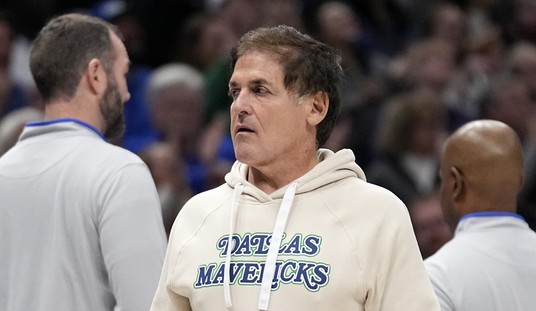In the aftermath of the unspeakable recent tragedy in Roseburg, Oregon, many on the Left have invariably made odes to the purported crème de la crème of all possible “gun safety” policy proposals — namely, Australia’s national gun confiscation program instituted as a direct result to the 1996 Port Arthur massacre. For prospective gun-grabbers, Australia’s mass confiscation represents something of a utopia (never mind the mixed literature* on its actual measurable effects on the national homicide rate) that might be within reach here in the United States were it not for that darn “embarrassing” Second Amendment. While the intellectual honesty of what these hard Leftists actually hope to do in the U.S. — as opposed to vague references to “common-sense gun safety laws” which would have no effect on preventing these horrific mass shootings — is refreshing (if Orwellian), there are a couple of things that must be said about the vaunted Australian program.
Firstly, the 1996-1997 Australian confiscation program did not come even remotely close to universal success. While estimates vary, the generally accepted figure of one million guns grabbed amounts to a confiscation “success” rate of somewhere between 20% to 33% of the national firearms stock. But as a result of the enduring social contractarian agreement here in America between We the People and our representative government, our forebears long ago made the conscientious decision to make firearm possession widely available in this nation as a preclusive measure against the prospect of a tyrannical government coup. Pursuant to this enduring social contract, we are a well-armed citizenry; so well-armed, in fact, that estimates are that the number of guns in America today likely exceeds the number of people. Holding aside obvious concerns about post-D.C. v. Heller (2008) constitutionality** and the program’s unbearable intrusiveness, then, there is simply no empirical reason to believe that mirroring Australia’s program would be even mildly efficacious in achieving Leftists’ desired results. Hundreds of millions of guns would still remain in the hands of the citizenry/the national militia. The Second Amendment that flows from our Founding social contract, and our concomitant cultural commitment to private firearm possession, is simply fundamentally distinct from Australia’s in such as way as to render policy comparisons between the two countries all but pointless.
Secondly, there is the subtler point that the disparate protections from government takings among Australia and the U.S. are distinct in crucial ways. The Fifth Amendment to the U.S. Constitution ensures that, “private property [shall not] be taken for public use, without just compensation” (emphasis added). By contrast, §51(xxxi) of the Australia Constitution states that, “Parliament shall, subject to this Constitution, have power to make laws for the peace, order, and good government of the Commonwealth with respect to…the acquisition of property on just terms from any State or person…” (emphasis added). Let us note that forcible government confiscation of private firearms is indubitably a taking requiring just compensation under American takings law. Let us further note the important textual distinction between “just compensation” and “…on just terms.” A requirement of compensation “on just terms” entails a notion of “fairness” and relativistic valuing which, contra Fifth Amendment law, does not necessarily import an equivalence of market value. As a concrete example, Australia’s Parliament probably could have followed the plain text of its Constitution and determined that the overriding national interest in massively confiscating firearms was so high in 1996-1997 as to render individual payments “on just terms” for seized guns effectively de minimis. However, here in the land of the free and the home of the brave, market value would undoubtedly be required for government seizure of private firearms. As insignificant as that may seem to the “money grows on trees” crowd so increasingly ubiquitous among the anti-math/fiscal sanity Progressive grassroots, guns are not cheap. It is virtually impossible to peg a monetary estimate to what a national buyback program might cost here, but it would likely be extremely expensive — due to both the disparate constitutional provisions for takings and the fact that there are so many more firearms in the U.S. — and dwarf the cost of Australia’s program, which was 500 million Australian Dollars. Do Leftists really want to borrow more money from China, hike taxes on the amorphous “wealthy,” and/or inflate our own currency to pay for this? (I guess the question answers itself.)
Leftists would instead be better off appreciating the significance of the Second Amendment’s role in America’s unique social contract. As Judge Alex Kozinski (a son of Holocaust survivors) of the U.S. Court of Appeals for the Ninth Circuit noted in a 2003 dissent from a denial to rehear a case en banc, the Second Amendment is a “doomsday provision” protecting against a fatal mistake that “a free people get to make only once”:
The majority falls prey to the delusion—popular in some circles—that ordinary people are too careless and stupid to own guns, and we would be far better off leaving all weapons in the hands of professionals on the government payroll. But the simple truth—born of experience—is that tyranny thrives best where government need not fear the wrath of an armed people. Our own sorry history bears this out: Disarmament was the tool of choice for subjugating both slaves and free blacks in the South. In Florida, patrols searched blacks’ homes for weapons, confiscated those found and punished their owners without judicial process. In the North, by contrast, blacks exercised their right to bear arms to defend against racial mob violence. As Chief Justice Taney well appreciated, the institution of slavery required a class of people who lacked the means to resist. See Dred Scott v. Sandford, 60 U.S. (19 How.) 393, 417 (1857) (finding black citizenship unthinkable because it would give blacks the right to “keep and carry arms wherever they went”). A revolt by Nat Turner and a few dozen other armed blacks could be put down without much difficulty; one by four million armed blacks would have meant big trouble.
All too many of the other great tragedies of history—Stalin’s atrocities, the killing fields of Cambodia, the Holocaust, to name but a few—were perpetrated by armed troops against unarmed populations. Many could well have been avoided or mitigated, had the perpetrators known their intended victims were equipped with a rifle and twenty bullets apiece, as the Militia Act required here. If a few hundred Jewish fighters in the Warsaw Ghetto could hold off the Wehrmacht for almost a month with only a handful of weapons, six million Jews armed with rifles could not so easily have been herded into cattle cars.
My excellent colleagues have forgotten these bitter lessons of history. The prospect of tyranny may not grab the headlines the way vivid stories of gun crime routinely do. But few saw the Third Reich coming until it was too late. The Second Amendment is a doomsday provision, one designed for those exceptionally rare circumstances where all other rights have failed—where the government refuses to stand for reelection and silences those who protest; where courts have lost the courage to oppose, or can find no one to enforce their decrees. However improbable these contingencies may seem today, facing them unprepared is a mistake a free people get to make only once.
Fortunately, the Framers were wise enough to entrench the right of the people to keep and bear arms within our constitutional structure. The purpose and importance of that right was still fresh in their minds, and they spelled it out clearly so it would not be forgotten. Despite the panel’s mighty struggle to erase these words, they remain, and the people themselves can read what they say plainly enough:
A well regulated Militia, being necessary to the security of a free State, the right of the people to keep and bear Arms, shall not be infringed.
(most internal citations omitted)
* A “hat tip” for the embedded link’s study goes to Charles Krauthammer’s column yesterday.
** I readily concede here that, under my Lincolnian view of “departmentalist” constitutional exegesis and rejection of judicial despotism, I think a Democratic Congress would be legally justified in flouting the U.S. Supreme Court’s D.C. v. Heller decision and passing gun laws that blatantly violate Heller‘s central holding. However, as an observational matter, we are a nation that has largely — and unfortunately — subscribed to the myth of judicial supremacy, and such a legislative possibility is alas no more than an interesting abstract hypothetical.













Join the conversation as a VIP Member